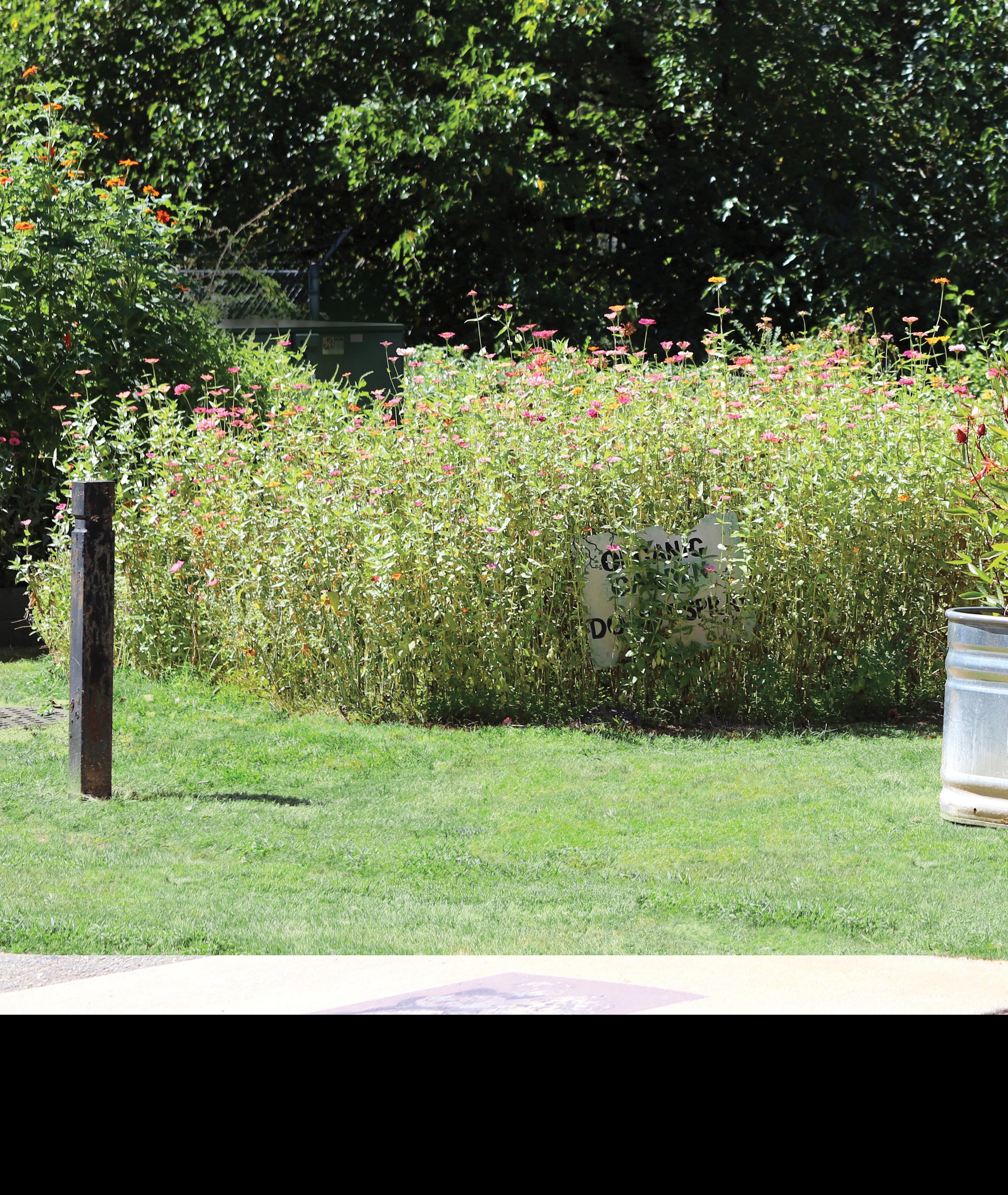
2 minute read
Campus Spotlight: Beauty in Bloom
By Nicholyn Hutchinson
Agnes Scott College is known for its majestic trees, but on a small plot of land on E. Dougherty Street across from the Bullock Science Center is another illustration of nature’s beauty on its campus. There sits an organic garden, full of color and life, flourishing without the use of synthetic pesticides and fertilizers. Those who rarely venture on the campus’ south side may not know this special treasure exists.
The journey to the current garden began when the Center for Sustainability and a group of staff and faculty volunteers constructed the raised beds on the sunny patio behind Winship Hall and planted the first seeds during the May 2009 Community Day. One of the center’s first sustainability fellows, Justine Schwartz ’10, took on the task of moving the raised beds to the more prominent location where they now sit. And a summer intern in the center, Leah Bryant ’13, worked nonstop through heat and mosquitos to bring the garden to its highest level of productivity until Lois Turner Swords ’77 was brought on staff as the college’s garden manager.
Different plants are always growing in the garden, and they change with the seasons. This fall it featured beds of zinnias, marigolds, lemon balm, red clover, Tuscan basil, tulsi (holy) basil, Mexican sunflowers and volunteer tomatoes. Blueberry, elderberry, coneflower, rudbeckia, bee balm and calendula have been planted within the past year.
No matter what is blooming at the time, the garden is eye-catching. Members of the Agnes Scott community stop by to admire it as well as people from neighboring areas who are on campus to attend events or just passing through on a walk. Inarguably, no one enjoys the garden more, however, than its most frequent guests— the pollinating insects. Often butterflies, moths, flies, honeybees, bumblebees, wasps, carpenter bees and other insects can be spotted among the flowers. Their presence is a reminder that the garden provides other benefits than just its beauty.
One example is the organic garden will be evolving into a pollinator garden to better support bees in particular because of the decline in their population due to pesticides and environmental threats. Another is that the garden is a source of education, with students learning the art of planting, growing and harvesting plants. Several students and Swords also participated in the University of Georgia’s citizen-led pollinator census in August, counting the number of insects in Agnes Scott’s garden. Swords notes that garden could also be incorporated into the curriculum of art, math, creative writing and biology courses.
As its loving caretaker for six years, she summarizes everything of value the garden offers, saying simply, “It’s beautiful, it’s productive and it’s beneficial.”






